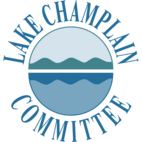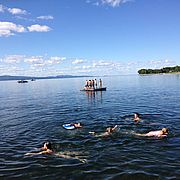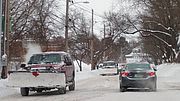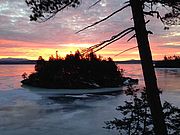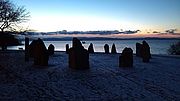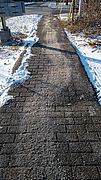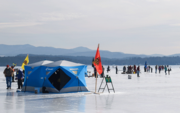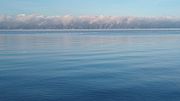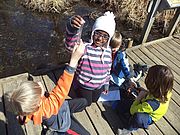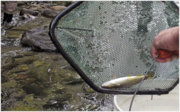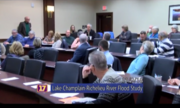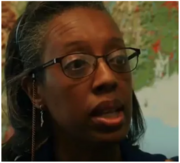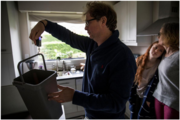In his January 24, 2019 Budget Address, Vermont Governor Phil Scott proposed using a portion of the Estate Tax to fund water projects. We applaud the Governor’s commitment to long-term clean water funding, but we are concerned with the proposal he advanced because the tax is variable and moves around existing funds in the state budget. For several years LCC has been working as a member of the Vermont Water Caucus to advance state environmental policy. Read...
News from Selected Month
After winter storm Harper dumped over two feet of snow in parts of the Lake Champlain watershed, followed by more precipitation in the form of freezing rain, the roads were slick from both snow and ice. The few cars braving the weather might find themselves outnumbered by plows, earthmovers, and dump trucks. While the sudden appearance of plows and clear roads after a storm may seem like magic, the snow removal process takes careful planning. Even before the Lake Champlain basin’s heavy snow comes down, or freezing rain coats the roads, municipalities are already swinging into action.
In the midst of winter changes there is a lake phenomenon that seems more at home in the extreme cold of the arctic than familiar Lake Champlain. Commonly called ice volcanoes, this phenomenon is unique to large northern lakes and oceans, where powerful waves send “eruptions” of water through the ice.
100,000 years ago, winter in the Champlain valley was a lot longer. The last glaciers of the ice age filled the Green and Adirondack Mountains, carrying vast amounts of earth that scraped the land like sandpaper, deepening the valley that would one day hold Lake Champlain.
Winters on Lake Champlain are known for their long hours of darkness. As the sun sets earlier each afternoon, and rises later each morning, those who have settled in this valley may begin to feel the days blend together into one long winter’s night.
Salt is the ubiquitous solution to icy roads and sidewalks, but it isn’t the only way you can keep from slipping during the winter. Excessive use of salt damages plants’ ability to absorb nutrients, and can affect aquatic life if it’s washed into a water body.
Want to try ice fishing for the first time or improve your skills? Come out to Knight Point State Park, North Hero, VT any time from 11:00 AM to 3:00 PM on Saturday January 26 where the VT Fish and Wildlife Department will host a free ice fishing festival. Fishing is free and no licenses are required for fishing any of the state’s waters that day!Read...
Join LCC, ECHO, and other members of the Clean Water Policy Network on Monday (1/28/19) morning for a discussion of clean water issues and upcoming legislation. The January forum in Montpelier provides participants with a preview of issues, legislation, and regulatory initiatives in the coming session.
World Water Day celebrates the importance of water around the world. In the Lake Champlain watershed we will be celebrating World Water Day on March 21, 2019 with a K-12 student contest! The contest will be hosted at the Main Street Landing Performing Arts Center in Burlington, VT. All student submissions of original art, videos, photography, and writing will be gathered for public viewing from 4:00 – 6:30 PM, awards will be given to winning submissions, and guest speaker Dr. Danielle Garneau, Associate Professor of Environmental Science at SUNY Plattsburgh, will present on “Plastics in Lake Champlain: How you can help”.
Biologists in Montpelier, VT question if a warm, dry fall is to blame for a drop in the Lake Champlain watershed’s landlocked salmon population – or whether there’s another reason. Salmon in the region have been declining for the past five years, and in 2018 their population was the lowest it’s been since 2009.
Recent public meetings were held to provide an update and get citizen input on the Lake Champlain-Richelieu River Flood Study which began in 2017 and will be completed in 2021. LCC’s Executive Director serves on the Public Advisory Group for the study. If you missed these meetings you can catch up on developments by watching the one held in Vermont online!
A mass die-off has caused many of the invasive alewife fish to wash up at Rossetti park just before New Year. Thousands of the tiny herring coated 100 square feet of the lake’s waterline. According to VT Fish and Wildlife fishery scientist Shawn Good, the die-off is the natural result of the alewife’s sensitivity to fluctuations in temperature. Colchester Sun.
Vermont State climatologist Lesleay-Ann Dupigny-Giroux answers pressing questions about the effects climate change will have on the Northeast. Dupigny-Giroux contributed to the Fourth National Climate Assessment as the lead author of the Northeast chapter. The National Climate Assessment was a report published on November 23, 2018, which focused on environmental, human health, and economic impacts of climate change in the U.S. VT Digger.
“PARCHMENT, Mich. — The day this small town told its residents to stop drinking the water, life on Glendale Boulevard turned from quiet to alarming.” For years calls for polyfluoroalkyl and perfluoroalkyl substances, or PFAS, to be federally regulated have gone unanswered. This summer one more small town paid the price. Washington Post.
“Dr. Natalia Ivleva, a researcher with the Technical University of Munich (TUM), has developed new analytical methods for the identification and quantification of microplastic. In this interview, she shares her latest findings.” Environmental News Network.
“Most people’s New Year’s resolutions are all about self-improvement: exercising more, saving money, learning new skills. This year, enlist your family in a group resolution: reducing your single-use plastic waste.” National Geographic.
